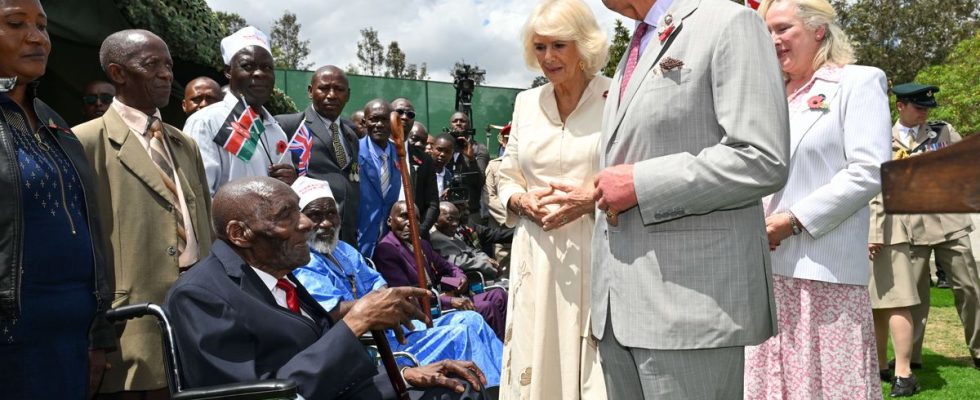“Heinous and unjustifiable acts of violence have been committed against Kenyans as they wage a painful struggle for independence and sovereignty. And for that, there can be no excuses,” said Charles III in a speech delivered Tuesday evening in Nairobi, on the first day of his trip to Kenya.
The king laid a wreath at the tomb of the unknown soldier in a garden where the flag of Kenya was raised in December 1963, in place of the British “Union Jack”, and participated in a state dinner with the president William Ruto.
The 73-year-old sovereign’s two-day program in the capital includes meetings with entrepreneurs, young people, a visit to a new museum dedicated to the history of Kenya and an elephant orphanage.
Study history
But the issue of reparations and apologies is at the center of attention in this former country of the British colonial empire. Charles III’s speech on Britain’s crimes in Kenya did not contain a request for forgiveness.
“None of this can change the past, but by approaching our history with honesty and openness, perhaps we can demonstrate the strength of our friendship today and, in doing so, we can hopefully continue to build an ever closer bond for years to come,” the king explained.
“The Empire’s Dark Past”
William Ruto praised the “courage and will” of Charles III “to shed light on uncomfortable truths” and which “constitute a first step towards progress going beyond the timid and equivocal half-measures of recent years” .
“Facing the dark past of the British Empire”, headlined the Kenyan daily on Wednesday The Standard. For The Star, the demands for reparations are “unrealistic”, adding in an editorial: “What can King Charles fix today? “.
However, he suggested that the sovereign could contribute to the restitution of looted property and a skull of a traditional leader who led a bloody resistance movement against colonial occupation a century ago.
Repairs at a standstill
Many Kenyan veterans and human rights organizations were expecting an apology from the British authorities for atrocities committed during the colonial period (1895-1963).
For the moment, in 2013, they simply expressed “sincere regrets” for the colonial violence in Kenya.
In 2013, after years of proceedings, London also agreed to compensate more than 5,000 Kenyans victims of abuse during the Mau Mau uprising, which left more than 10,000 dead between 1952 and 1960.
After deducting legal costs, each received around 2,600 pounds (3,000 euros).
Charles III’s four-day state visit to Kenya, his first as king to a Commonwealth country, comes just weeks before the country’s 60th anniversary celebrations on December 12.

